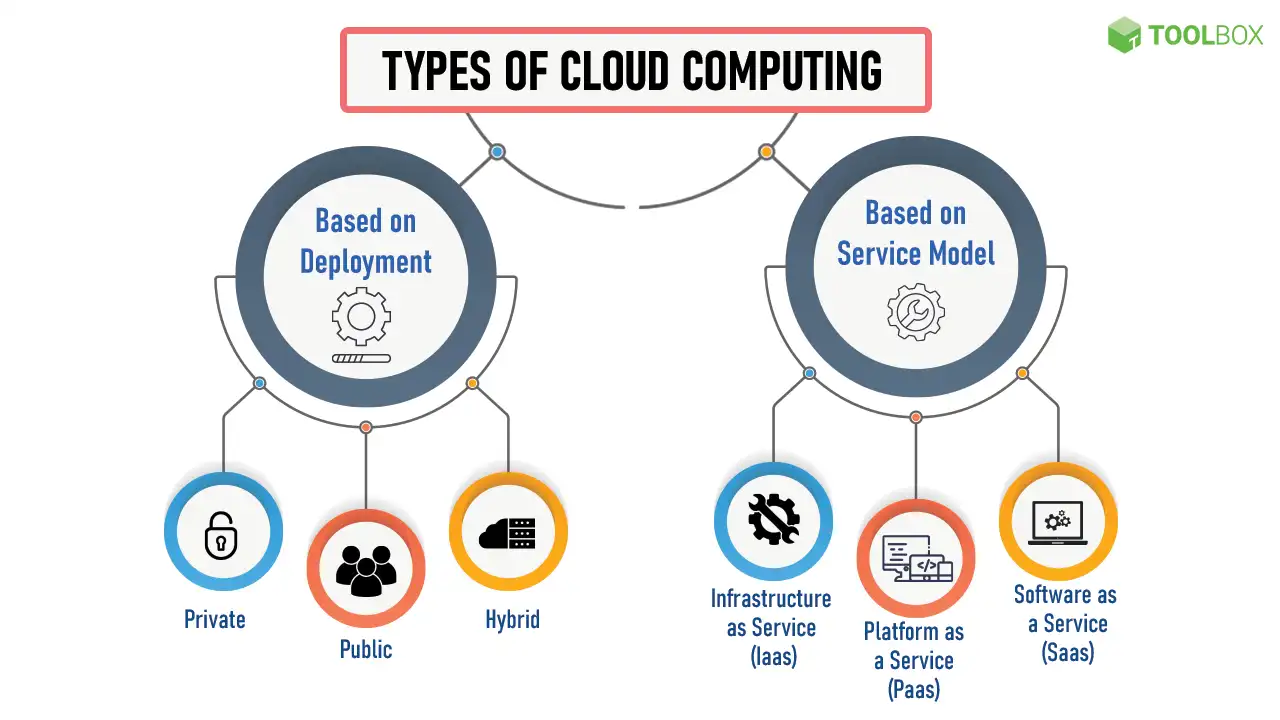In a rapidly evolving business environment, organizations face the constant pressure to stay competitive while managing costs and improving efficiency.
Traditional IT infrastructures often struggle to meet these demands, leading to operational bottlenecks and increased expenses. Cloud computing emerges as a powerful solution, offering scalable resources, enhanced security, and cost savings. In fact, Dell reports that companies that invest in the cloud enjoy up to 53% faster revenue growth than their competitors.
“By leveraging cloud services, businesses can achieve greater flexibility, streamline operations, and ensure robust disaster recovery”, says Jason Harlam, Business Development Manager at Technology Advisory Group
This strategic shift not only addresses current challenges but also positions organizations for future growth and innovation. Understanding the importance of cloud computing is crucial for any business looking to thrive in today’s digital age.
Got Concerns About Your Data’s Security?Protect your business with Technology Advisory Group’s secure cloud solutions. |
Understanding the Importance of Cloud Computing
Cloud computing refers to delivering various services through the internet, including data storage, servers, databases, networking, and software. These services offer numerous benefits that traditional on-premises IT systems simply cannot match.
A study showed that 77% of businesses feel cloud technology gives them a competitive advantage, and 16% believe it is significant.
The primary importance of cloud computing lies in its ability to provide scalable and flexible computing resources on demand, which allows businesses to quickly adapt to changing market conditions and demands.
1. Cost Efficiency
One of the most significant advantages of cloud computing is cost efficiency.
Cloud solutions eliminate the need for large upfront investments in hardware and software. Instead, organizations can access these resources on a pay-as-you-go basis. This model reduces capital expenditure and allows companies to allocate their budgets strategically.
2. Scalability and Flexibility
Cloud environments offer unparalleled scalability and flexibility. Businesses can easily scale their computing resources up or down based on their needs. Whether experiencing a sudden spike in web traffic or needing more storage for data analytics, the cloud can accommodate these changes seamlessly without needing additional physical infrastructure.
3. Enhanced Security
Security is a top concern for many organizations. Cloud service providers invest heavily in securing their infrastructure, often providing more robust security measures than many businesses can afford independently. Features such as encryption, identity and access management, and regular security updates help protect sensitive data from cyber threats.
4. Disaster Recovery and Business Continuity
Cloud computing provides reliable disaster recovery and business continuity solutions. In a system failure, natural disaster, or cyberattack, cloud-based disaster recovery plans ensure that data can be quickly restored, minimizing downtime and operational disruption. This capability is crucial for maintaining business continuity and protecting against data loss.
5. Collaboration and Mobility
Cloud computing services enable real-time collaboration and remote work. Employees can access files and applications from anywhere via the internet, promoting greater flexibility and productivity. This capability is especially important in today’s work environment, where remote and hybrid work models are becoming increasingly common.
| More resources you might like: |
Deployment Models of Cloud Computing
Organizations can choose from several deployment models based on their specific needs:
1. Public Cloud
Public clouds are operated by third-party cloud service providers and offer computing resources over the internet. They are cost-effective and suitable for organizations with variable workloads.
2. Private Cloud
A private cloud is dedicated to a single organization and can be hosted on-premises or by a third-party provider. It offers enhanced security and control, making it ideal for businesses with strict regulatory or security requirements.
3. Hybrid Cloud
Hybrid clouds combine public and private cloud elements, allowing data and applications to move between them. This model offers flexibility and optimized resource usage, making it a popular choice for many organizations.
Comparison of Cloud Deployment Models
| Feature | Public Cloud | Private Cloud | Hybrid Cloud |
| Cost | Lower initial cost, pay-as-you-go | Higher initial cost, dedicated resources | Moderate cost, mix of both models |
| Scalability | Highly scalable | Limited by in-house resources | Scalable, with control over critical data |
| Security | Standard security measures, less control | Enhanced security, full control | Balanced security, critical data control |
| Customization | Limited customization | High customization, tailored solutions | Moderate customization, flexible |
| Management | Managed by service provider | Managed by in-house IT team | Shared management |
| Data Control | Less control over data location | Complete control over data location | Control over critical data |
| Compliance | May not meet all compliance requirements | Easier to meet compliance requirements | Compliance for critical data |
| Latency | Higher latency due to shared resources | Lower latency, dedicated resources | Variable, depending on the architecture |
| Deployment Speed | Rapid deployment | Slower deployment, setup required | Variable, faster for certain aspects |
| Best For | Small to medium businesses, startups | Large enterprises, regulated industries | Organizations needing flexibility and control |
Why Cloud Computing is Important for Innovation
Cloud computing is not just about cost savings and efficiency; it also drives innovation. By providing access to advanced technologies such as machine learning, big data analytics, and artificial intelligence, the cloud enables organizations to innovate faster and more effectively. Cloud solutions allow businesses to experiment with new ideas, develop and deploy applications quickly, and bring products to market faster.

Source: Spiceworks
Cloud Computing Service Models
Cloud computing services are typically delivered through various service models:
1. Software as a Service (SaaS)
SaaS provides access to software applications over the internet on a subscription basis. Examples include email services, customer relationship management (CRM) systems, and office productivity tools.
2. Platform as a Service (PaaS)
PaaS offers a platform for developers to build, deploy, and manage applications without worrying about the underlying infrastructure. It simplifies the development process and accelerates time-to-market.
3. Infrastructure as a Service (IaaS)
IaaS provides virtualized computing resources over the internet. Organizations can rent servers, storage, and networking capabilities, allowing them to build and manage their IT infrastructure with greater flexibility.
Cloud Solutions for Various Industries
Different industries leverage cloud computing to achieve specific objectives. Healthcare organizations, for instance, use the cloud for secure data storage and telemedicine services.
Financial institutions rely on cloud solutions for real-time transaction processing and fraud detection. Manufacturing companies utilize the cloud for supply chain management and predictive maintenance. Real estate companies benefit from cloud-based platforms for virtual tours and property management.
The versatility of cloud computing makes it applicable to virtually any sector.
Overcoming Challenges with Cloud Computing
While the benefits are clear, adopting cloud computing is not without challenges. Data security, regulatory compliance, and the complexity of integrating cloud solutions with existing systems are common concerns. However, these challenges can be effectively managed with proper planning and the right cloud service provider.
Maximize Cloud Benefits with Technology Advisory Group
The transformative potential of cloud computing cannot be overstated. By embracing cloud solutions, organizations can achieve unprecedented agility, cost savings, and enhanced security, setting the stage for sustainable growth and innovation.
| Discover Trusted Cloud Services Near You |
Technology Advisory Group offers bespoke cloud solutions tailored to your business needs. Our expertise ensures seamless migration, top-notch security, and optimal performance, empowering your organization to leverage the full power of the cloud.
Contact us today to schedule a free consultation and discover how we can drive your business forward in the digital age. Take the first step toward a cloud-powered future.
Schedule Your Cloud Services Consultation
Ready to make a move to the cloud? TAG is ready to help with any or all cloud services from a private cloud, public cloud, or Microsoft 365 services.


